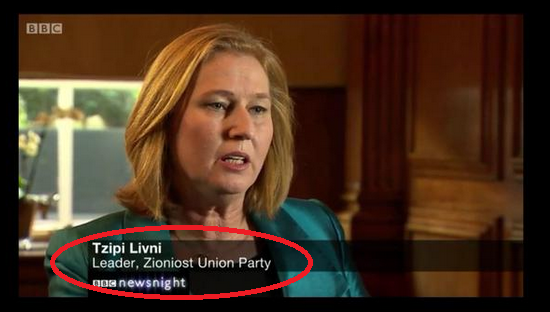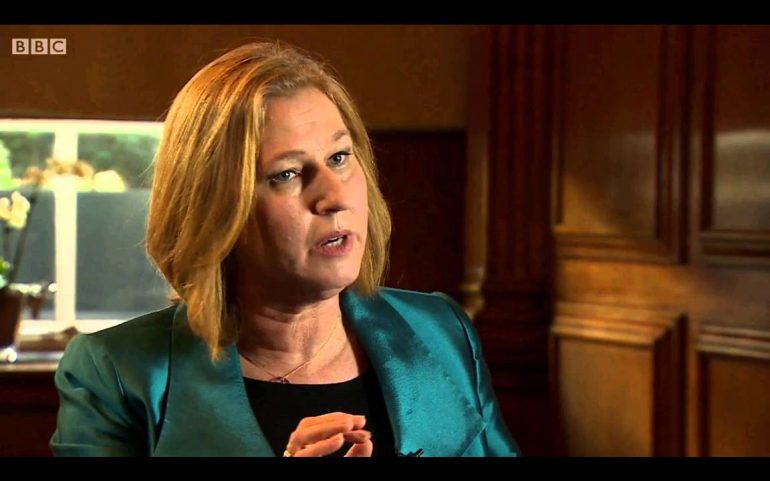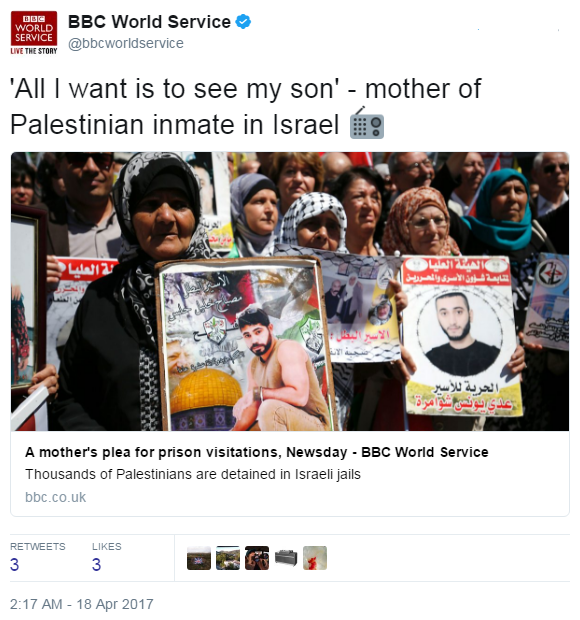On June 16th Israeli MK and former minister Tsipi Livni was interviewed on BBC Two’s flagship news programme ‘Newsnight’ and – not for the first time – presenter Evan Davis’ lack of Middle East proficiency was on show, along with some typical BBC attention to accuracy.

Davis introduced the interview with the following statement:
“Israel is viewed negatively in much of the world and certainly so in the UK.”
Davis of course did not reveal the source of the factual information (if there is any) which led him to that sweeping assumption but, as a poll carried out for Chatham House in August 2014 at the height of the conflict between Israel and Hamas showed (page 5), the majority of respondents did not describe themselves as viewing Israel “unfavourably”.
Davis continued:
“The international image certainly worries the country and Prime Minister Netanyahu said the campaign to delegitimise Israel must be fought. In his sights was the BDS movement – Boycott, Divest and Sanction [sic]. The last thing Israel wants is that any comparison to apartheid South Africa to catch on.”
Not only do we see that – once again – the BBC made no effort to provide audiences with the full range of information concerning the aims of the BDS campaign, but in the course of the conversation with Tsipi Livni, Evan Davis actively misrepresented its agenda.
Livni: “Basically, it’s [the BDS campaign] not for two states for two peoples – it’s basically against the State of Israel. They are not talking about two states living in peace in the Middle East but they are basically against the State of Israel.”
Davis: “I think many in the BDS movement are in favour of the two state solution – aren’t they?”
Having devoted the first part of the interview to the topic of BDS, Davis came up with a question for Livni in which he interestingly managed to get past the BBC’s professed aversion to making “value judgements”:
“Would you describe your parents as terrorists?”
He then went on to introduce the topic of ‘disproportionality’ but, rather than using the opportunity to relieve audiences of some of the misinformation on that topic propagated by BBC journalists during last year’s conflict and others, Davis added to it. It is embarrassingly obvious that Davis (apparently along with his editors, who surely must have vetted the questions before they were asked) either has absolutely no idea what that term really means in the framework of the Laws of Armed Combat or elected to mislead viewers on the topic.
Davis: “The UN, others, plenty, think there is disproportionate force used by the Israeli army for the threat against Israeli civilians.” […]
Davis: “What is the ratio of the families losing children?”
Livni: “We are not targeting civilians.”
Davis: “I know you’re not targeting but what is the ratio of civilian to… untargeted killed by the Israelis relative to those killed in Israel by Hamas?”
What Davis is doing here is promoting the false notion that ‘proportionate’ means equality in death or suffering. That, of course is not the definition of the term in the context of war and the fact that he makes no effort to inform his audiences what the term really means is ample indication that the simplistic take-away message audiences are intended to receive is that Israel must be in the wrong because fewer Israelis die.
When such shoddy and blatantly partial ‘journalism’ is broadcast on prime time British television it is once again patently obvious that the BBC’s lack of commitment to its legal obligation to “[e]nhance UK audiences’ awareness and understanding of international issues” is precisely one of the factors contributing to the existence of UK residents’ negative views of Israel touted by Davis in his introduction.





